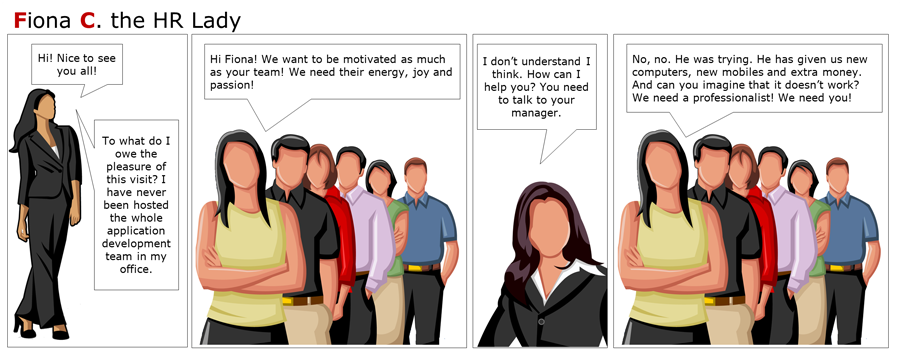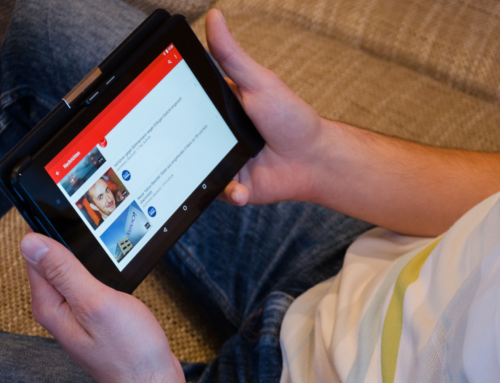
Motivation, motivating, engagement…These terms are very often used in the world of business. Every manager wants to have a motivated and engaged team, and every HR department wants to discover and give effective tools for motivating employees to the managers.
In order to find out how to achieve that, let’s first define some of the above terms.
The word ’motivate’ comes from the Latin moveo, movere, which means ’to move’, so on the etymological level it refers to dynamism, energy, activity or the reasons for an action. Therefore, to create a simple and practical definition, it would be good to define motivation to work as the reasons which trigger, direct and maintain the professional activity of an employee.
However, from the point of view of human resources management, it is exerting an influence on an employee through different methods and tools, so that their professional activity remains on a satisfactory level.
The most difficult one to define is employee engagement, which is commonly confused with motivation. Employee engagement is a positive emotional state, resulting in the completion of tasks at work at more than the bare minimum. It also visible through overall happiness, job satisfaction, need for development, taking responsibility and loyalty. Taking into account these definitions, let’s look at the following equation:
motivation + motivating = engagement

Taking the above into consideration, a manager who would like to have a team of engaged employees should:
- find out what motivation the employees have, which in other words means to define what gives them the energy to perform their professional activity at a certain level.
- use the tool/method of motivating appropriate for that type of motivation, which means triggering the thing that provides the energy to complete a task at a certain level.
In order for the ’engagement equation’ to work, the education of managers by HR departments is essential. The second important activity is building an awareness that motivating employees is not a separate managerial task, but is a result of all the managerial competences together. Each activity, even the least important, of a superior (way of delegating, greeting, making decisions) can increase or decrease employee engagement.
Glossary:
- motivation – motywacja
- motivating – motywowanie
- engagement – zaangażowanie
- term – pojęcie
- etymological – etymologiczny
- refer to – odwołać się do
- exert – wywierać
- satisfactory – zadowalający, dostateczny
- bare minimum – wymagane minimum
- take into account – brać pod uwagę
- trigger – wywoływać, odpalać (pistolet)
- delegate – delegować, wydawać dyspozycje
- equation – równanie
- managerial competences – kompetencje kierownicze/menedżerskie
- increase – zwiększać, wzrastać
- decrease – zmniejszać, maleć
Idiom of the month:
a rat race
meaning:
- a fierce struggle for success, especially in one’s career or business
in Polish:
- wyścig szczurów
examples:
- In our company there is a rat race, and many employees who work in it get out quickly because of the stress.
Exercise:

Exercise – Fiona C. the HR Lady:













